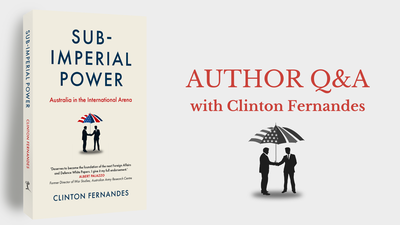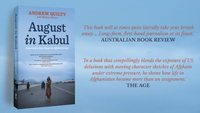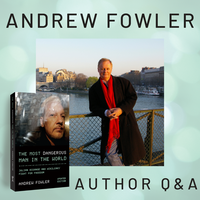Q & A with Clinton Fernandes—Author of Subimperial Power

1. What is the role of a subimperial power, and why is Australia considered to be one?
A subimperial power is both subimperial and powerful. It is not a client state. It subordinates important aspects of its sovereignty, defence and foreign policy in service of the imperial system while exerting significant power in its own area of influence.
Australia is a subimperial power. It has a stable government, strong economic performance and educated citizens. It has a capable, technologically advanced military and a number of intelligence agencies that operate in the region and far afield to uphold a ‘rules-based international order’. This order is very different to the international order embodied in international law and the United Nations Charter. In reality, the United States sits at the apex of a hierarchically structured imperial system. Australia is an active, eager participant in the US-led order. The rules-based imperial order delivers considerable benefits, and Australian public opinion is strongly in favour of the alliance with the United States.
2. Throughout your career and the writing of this book, what have you found most surprising about Australia’s foreign policy?
This book reflects more than three decades of involvement with our defence and foreign affairs, and so the surprises now are fewer than they were at the beginning. I used to be surprised by how reflexively intelligence analysts accepted and internalised the claims of policymakers and believed what they needed to believe to justify the policy; specifically, the assumption that our actions are invariably defensive and our intentions are invariably benign. The consequence can be seen in the chaotic defeat in Afghanistan, when the Chief of the Defence Force admitted that he was ‘surprised by the speed of the Taliban’s takeover’ but said he ‘didn’t know of anyone who predicted how quickly the collapse would occur, ‘‘other than in the glory of 20:20 hindsight’’’. A stunning condemnation of the performance of our intelligence agencies. No doubt some ‘independent review’ will be performed in the interests of legitimising these institutions for future adventures.
3 . What would it mean for Australia if China became the pre-eminent power in Asia?
It would be emotionally wrenching for Australian policymakers, who have luxuriated in the slipstream of American power for so long, as well as the echo chamber in the think tanks and media. For Australia, we will have to decide whether to develop a defence strategy that is independent while being regionally oriented, or remain militarily dependent and oriented to the US and NATO. A subimperial posture means choosing the latter.
4. Which books have informed your views on the topics covered within Subimperial Power?
I rely heavily on the internal planning record revealed by declassified documents at the National Archives. In addition, there are standard works by Bill Hudson, Jeffrey Grey, Geoffrey Blainey and policymakers such as Percy Spender and his successors.
5. What key message would you like to leave with readers once they finish the book?
Keep in mind that most foreign policy or defence books are written within policy silos that focus only on the Foreign Affairs or Defence sections of the cabinet papers; they therefore miss the underlying rationale for strategic policy and its place in the integrated governmental picture, omitting the domestic economic considerations that motivate external policy, as well as the strong link between foreign economic policy and other foreign and defence policies. They prefer to focus on policymakers’ fears of insecurity and their ideological commitments. Readers should always keep in mind that in the real world, policy is well-suited to the political logic of an integrated global economy in which Australian investors strive to operate with relative freedom.




